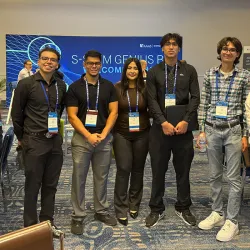
Six students from Cal State San Bernardino’s Experiential Computing and Engaged Learning Scholarships (ExCELS) program attended the 2025 S-STEM Scholars Meeting in San Diego, joining more than 1,200 scholars nationwide for workshops, research presentations, and networking opportunities in STEM.

The California State University Chancellor’s Doctoral Incentive Program prepares promising doctoral students for careers as CSU faculty. At the foundation of the fellowship program is the mentorship between a CSU faculty member and the fellow.
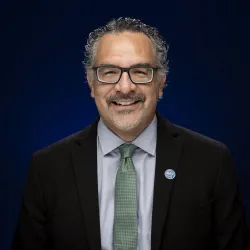
Muñoz, assistant dean of Student Success for the College of Social and Behavioral Sciences and interim chair of the Department of Geography and Environmental Studies, began his term on Sept. 1.
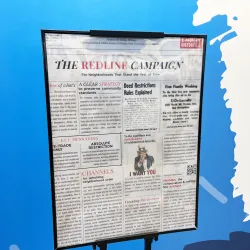
Taking place at the university’s Center for Global Innovation, the day-long conference panel sessions included scholars from institutional and community-based organizations, as well as poster presentations and information tables for community groups and services.
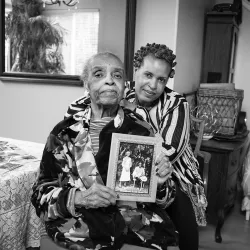
The conference, which is free and open to the public, is set to begin at 8:30 a.m. at the university’s Center for Global Innovation. Registration may be done online at the IE People's History Conference registration webpage.
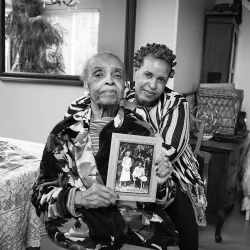
The IE People’s History Conference, set for May 3, seeks to bridge university research, creative activities, and community activism to explore the art, culture, and histories of Inland Southern California, known as the Inland Empire or IE.
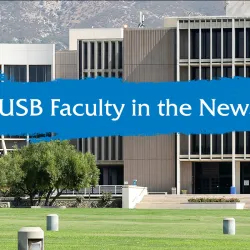
Jennifer Alford (geography and environmental studies) was one of the participants at a Nov. 13 meeting to discuss the proposed Mountain Lab Project, and Marc Arsell Robinson (history) and José Muñoz (sociology) announced a call for proposals for the Inland Empire People’s History Conference, set for May.
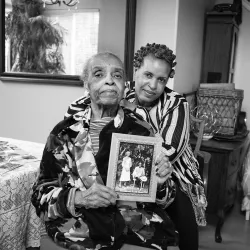
The IE People’s History Conference, set for May 3, seeks to bridge university research, creative activities, and community activism to explore the art, culture, and histories of Inland Southern California, known as the Inland Empire or IE.
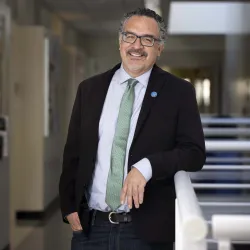
The network consists of eight CSU campuses: San Bernardino, Channel Islands, East Bay, Humboldt, Monterey Bay, Sacramento, San Marcos and Northridge. It aims to foster cross-campus collaborations to serve Latino students better in the CSU system.